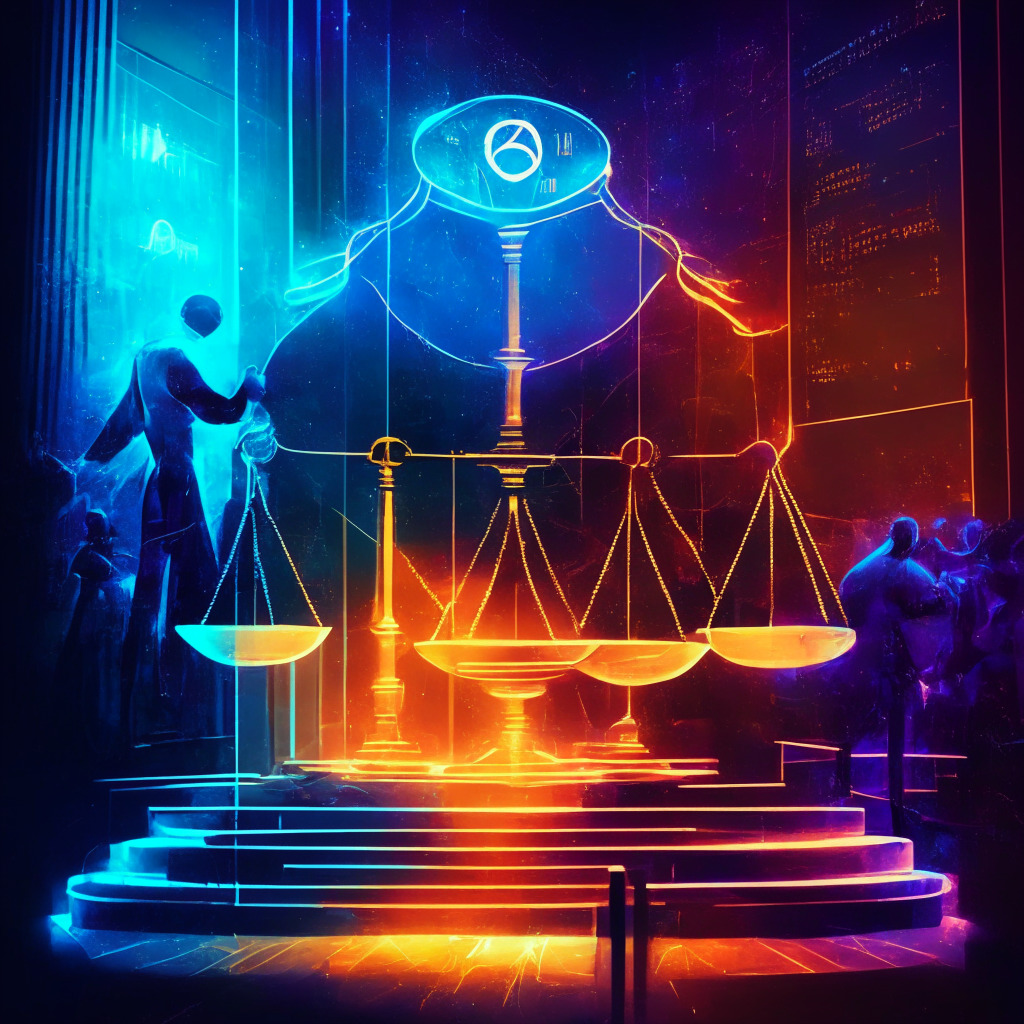The recent compromise between Binance.US and the US Securities and Exchange Commission (SEC) demonstrates both pros and cons of cryptocurrency regulations. While it provides protection and stability for Binance.US customers, it raises questions about potential risks and negative impact on the rapidly growing crypto industry.
Search Results for: Amazon Web Services
Binance.US, SEC Agreement: Protecting Assets or Stifling Innovation? Debating Oversight & Innovation
A recent agreement between Binance.US, Binance, and the SEC settles a temporary restraining order, permitting only Binance.US employees to access client funds during ongoing litigation. This highlights the broader debate on balancing regulatory oversight and preserving the innovative nature of the cryptocurrency industry.
Binance.US and SEC Reach Temporary Agreement: Protecting Customer Funds While Addressing Concerns
Binance.US and the SEC have reached a temporary agreement restricting access to customer funds to Binance.US employees and preventing Binance Holdings officials from accessing private keys. This follows the SEC’s motion to freeze Binance.US assets during ongoing securities-related legal proceedings.
Binance and SEC’s Proposed Agreement: Impact on Crypto Markets and Regulatory Compliance
Binance and its subsidiary Binance.US have reached a proposed agreement with the US SEC, awaiting federal judge approval. The agreement’s terms restrict access to customer funds and internal systems, with Binance.US sharing a detailed financial statement with the SEC. Concerns linger over Binance Global’s control and compliance with regulatory requirements.
Binance.US vs SEC: Striking a Balance between Regulation, Innovation and Privacy
Binance, Binance.US, and the SEC announced a deal ensuring only Binance.US employees could access customer funds, which awaits federal judge approval. The agreement aims to improve transparency and security in the growing crypto market while addressing concerns of regulations hindering innovation and privacy.
Exploring Blockchain with AlchemyAI: A Game Changer or Just Another Tool?
Alchemy, a prominent blockchain platform developer, announces the launch of AlchemyAI, a GPT-4 plugin for blockchain analysis. This tool transforms natural language inputs into specific blockchain queries, enhancing user experience and understanding. However, users are advised to exercise caution and fact-check provided information due to AI limitations.
7 In-Demand IT Certifications Boosting Your Tech Career: Pros, Cons & Main Conflict
This article discusses the top seven in-demand IT certifications, covering specializations such as data management, networking, information security, project management, cloud security, and ethical hacking. Obtaining these credentials increases marketability, unlocking rewarding employment opportunities and competitive salaries in the tech industry.
Binance & Binance.US Battle SEC Lawsuit: The Fate of Crypto Regulations and Industry
Binance and Binance.US face the SEC in court over a proposed temporary restraining order, which they claim could threaten their businesses’ survival. Meanwhile, Ripple’s ongoing SEC lawsuit offers insights into the regulator’s deliberative process. The outcomes of these cases will significantly influence the future of cryptocurrency regulations and the industry’s landscape.
Asymmetry Finance’s Rise: Safeguarding Decentralized Staking amid Centralization Concerns
Asymmetry Finance raised $3 million in a seed funding round for its decentralized finance and liquid staking protocol, safETH. The funds will help expand offerings, hire new talent, and onboard users to the platform, which aims to minimize risks and provide an alternative to established Ethereum staking services. Asymmetry Finance’s growth demonstrates the increasing interest in decentralized staking alternatives amid centralization concerns.
Southeast Asian Super App Grab Launches Blockchain Wallet and NFT Vouchers: A Brave Step or Casual Ripple?
Southeast Asian super app Grab, in collaboration with the Monetary Authority of Singapore (MAS), is venturing into the realm of blockchain technology and non-fungible tokens (NFTs). They have unveiled a unique Polygon-based Web3 wallet and NFT vouchers, which serve as digital collectibles and can be used for various services across Singapore. While the project holds promise, questions about its feasibility and the security of these digital assets persist.
Alibaba’s Adoption of Meta’s AI Model Llama: Progressive Leap or Strategic Misstep?
“Alibaba, the first Chinese company to use Meta’s AI model Llama, signals a shift to zero-cost development programs. It raises questions about ties between China and Meta, and highlights complexities in the evolving landscape of AI adoption and open-source model integration. The role of such technologies in shaping our world remains to be seen.”
The Impact of NLP and AI on Human-Machine Interaction: Opportunities and Challenges Ahead
The rapid advancements in natural language processing (NLP) and artificial intelligence (AI) have transformed interactions between humans and machines, driving applications in customer service, language translation, and content generation. Despite challenges in data acquisition, professional expertise, and workflow integration, AI continues to permeate various industries, reshaping the digital landscape.
AI in E-commerce: Revolutionizing Customer Service or Crossing Privacy Lines?
AI is transforming e-commerce customer service with chatbots, personalized recommendations, voice assistants, fraud detection, and image recognition. Despite improvements in user experience, challenges remain, such as understanding complex queries and maintaining customer trust. Companies must strike a balance between effective AI implementation and addressing concerns to thrive in the competitive market.
NFT Security Threats: Safeguarding Collectibles Amid Platform Closures and Hacks
In the volatile world of NFTs, events like marketplace bankruptcy and hacks expose the shaky trust assumptions and risks surrounding asset security. Blockchain companies are developing solutions, but assets connected to blockchains are never completely secure. User education, technological development, and proactive risk mitigation are essential for safeguarding collectors’ assets.













